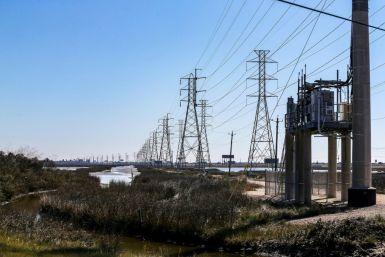Investment Analyst Criticises Australia’s Natural Resources Policy, Selling Big to China
American investment analyst James Dines criticised Australia's natural resources policy, particularly selling large land areas to China.
In his keynote address at the RIU Victorian Resources Roundup conference, he described China's buy-in as "resource imperialism." He stressed to the audience of mining executives, brokers and investors that a country's natural resources is a source of real wealth and should not be sold to foreign interests but kept for the next generations.
Individual and state-owned Chinese investors are shareholders in some of Australia's mining companies.
Mr Dines cited as proof of China's alleged resource imperialism its building up commodities stockpiles such as rare earths higher than its immediate needs, even if China produces 97 per cent of the global supply of copper.
However, unlike the old imperialism in which countries take over other nations and take control over its resources, China is buying the resources for domestic use.
"They are not buying a copper mine to re-sell at a higher price. They are buying it to use all that copper in China.... China are storing (commodities) as a form of hard money for next century and beyond," The Sydney Morning Herald quoted Mr Dines.
The analyst clarified he is not anti-China but instead acknowledged Beijing's strategy is legal and far-sighted thinking.
Mr Dines contrasted China's approach with that of the U.S. and Europe whose investors have short-term focus, particularly quarter-to-quarter earnings. He said the western economies apparently have not learned the lessons of history and are at the brink of a second economic depression because ot their large national debts and heavy reliance to solve the problem by printing money.
Mr Dines warned that the quantitative easing policies of these western economies would lead to their currency system's collapse. Instead of hiking money supply by printing more currency, as what happened after World War I and led to inflation in the 1920s and depression in the 1930s, he pushed for linking currencies to gold holdings.
He added that at the rate the U.S. is printing money, its debt would balloon to $20 trillion in the next nine years, which he said Washington could never repay.
With heavier demand for resources from developing Asian nations, finite resources will be strained. To protect Australia's food and resource security, Mr Dines said the government must ensure that a percentage of all mines and farmlands are kept in Australian hands.
"Sooner or later, Australia is going to need those rare earths for its own (hi-tech) manufacturing, or else your kids will be buying your own rare earths back from China, with a significant mark-up," Mr Dines said.






